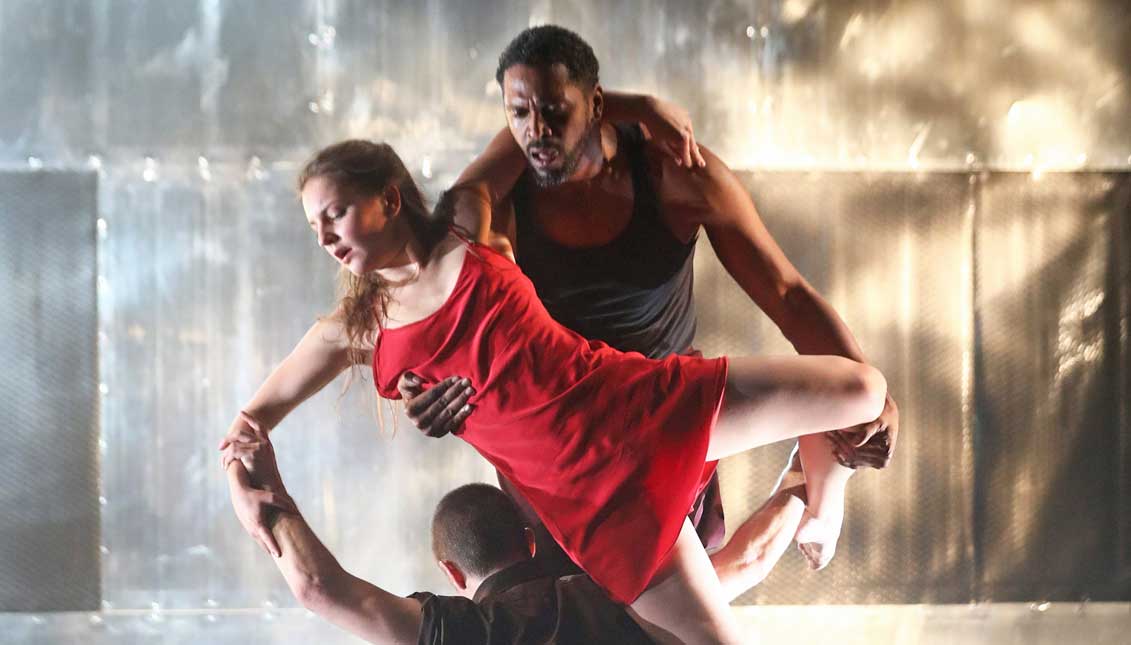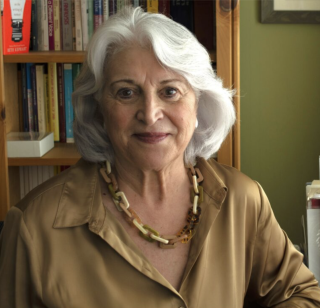
Blood Wedding at the Wilma Theater in Philadelphia
An Interpretation that Lorca Would Have Loved
Federico García Lorca was a poet and a playwright born in the province of Granada, Spain, in 1898. Due in part to his liberal political views and his homosexuality, he was one of the first victims of the Spanish Civil War (1936-1939). The Nationalist forces under Francisco Franco killed him, along with three other men, in the outskirts of Granada on August 19, 1936. His body has never been found, despite recent excavations in the area where the murders took place.
In his short life, Lorca wrote over a dozen poetry books, many of them published posthumously, and as many plays.
Among them, his so called “Rural Tragedies” are the best known. Blood Wedding (1932), with Yerma (1934) and The House of Bernarda Alba (1936) make up this famous trilogy.
The current, thrilling production at the Wilma Theater, directed and choreographed by the Hungarian Csaba Horváth, brings out the universal themes in Lorca’s Spanish work. Nevertheless, it keeps and transforms the play in a way that Lorca himself would have loved.
The play begins with the entire ensemble jumping rhythmically, grunting more than singing in a completely black, deep, bare stage. The actors are barefoot, dressed in plain street clothes in dark tones with some striking touches of red (costumes by Oana Botez), but there is little that resembles flamenco music or dance. They lunge loudly towards the audience, menacing almost, knowing that they have a poignant story to tell. A similar dance will be repeated on the wedding day, which would have been Lorca’s Act II. There is no break for the acts or intermission in this version.
Based on real events, Blood Wedding tells the story of an archetypal runaway bride who in 1928 in Andalusia, southern Spain, left with her true love, who was married to her cousin.
Lorca portrays this drama with a dialog full of poetry and symbolism: the men smell like carnations and geraniums; Leonardo, the Bride’s lover, is like a dahlia. The English translation by Nahuel Tellería is perfect in its simplicity and the rubber dance floor rolls back to show beautiful flowers in a clever wink to Lorca’s language.
RELATED CONTENT
The casting, however, is a tribute to Horváth’s direction. The Bride, Campbell O’Hare, and Leonardo, Lindsay Smiling, are the personification of passion and fury in their amazing performances. The Bride is a blonde woman, dressed in bright red and Leonardo is black, an imposing Apollo of a man. By casting these two roles with actors so far from the Spanish stereotypes, Horváth gives Lorca’s play a completely American, universal message.
Lorca spent several months studying English and music at Columbia University in 1929-1930. He was an accomplished piano player, but he didn’t master the English language. During his stay there, however, he wrote one of his most important works, Poet in New York (Poeta en Nueva York). One of the main themes of this poetry book is his appreciation of black power, strength and despair. “The King of Harlem” (“El rey de Harlem”), in the surrealist, long, beautiful poem, could be the epitome of Leonardo in this Wilma production.
The rest of the cast is equally impressive; the Mother in particular, Jaylene Clark, played by a black woman gives a majestic performance herself. Jered McLenigan, the Groom, is striking in his bright red bridal suit. Sarah Gliko, as Leonardo’s wife, wearing a paler red dress, not only shows her frustrated passion, but also plays the saxophone and the flute with lots of feeling. A guitarist plays with vague tones of a bolero, some seguidilla and a touch of bulerías. The chairs, one of the few props used, are reminiscent of flamenco chairs, but they are white, not the Spanish typical pine color.
In fact, if you go to the Wilma Theater to see Blood Wedding, thinking perhaps that it will be full of Spanish folklore with flamenco and cante jondo similar to Carlos Saura’s beautiful film version (1981), you will be thoroughly surprised. Horváth,´s production relates more to Pina Baush, the German choreographer, known for her innovative modern dance and for her movement, sound and original staging.
Having grown up in Franco’s Spain, I wasn’t able to see any of Lorca’s plays, since they were forbidden by his fascist government. I had to wait until the 1970’s, when I was a graduate student in Temple University to attend a performance of Blood Wedding at Bryn Mawr College. This production at the Wilma Theater has made the wait for me that much sweeter.
Performances at the Wilma Theater until November 19th.











LEAVE A COMMENT: